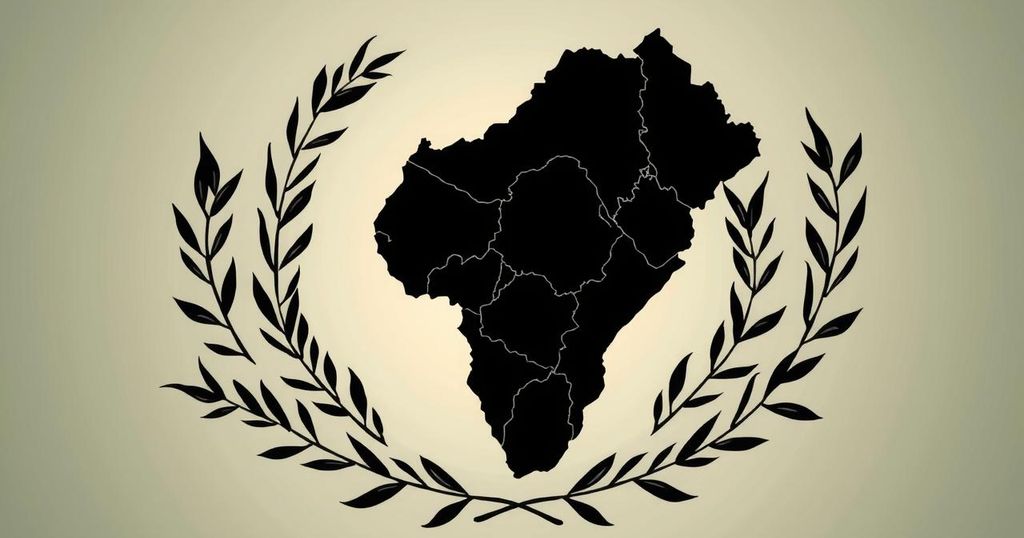A struggle for influence unfolds between Egypt and the UAE amid Sudan’s civil war, where Egypt supports the SAF and the UAE backs the RSF. The conflict, which began on April 15, 2023, has led to severe humanitarian crises. U.S. sanctions target military leaders, revealing the conflicting strategies of each nation in Sudan, highlighting the need for diplomatic efforts to reach a ceasefire for lasting stability.
Amid Sudan’s ongoing civil war, Egypt and the United Arab Emirates (UAE) are engaged in a significant power struggle. Egypt aligns with the Sudanese Armed Forces (SAF), while the UAE supports the Rapid Support Forces (RSF), exacerbating a humanitarian crisis that has ensued since violence erupted on April 15, 2023. As both countries pursue conflicting interests in Sudan, the implications for regional stability become more pronounced.
The Biden administration has imposed sanctions on prominent military leaders involved in the conflict, specifically targeting RSF Commander Hemedti due to alleged genocide and SAF head General Abdel Fattah al-Burhan for hindering peace initiatives. Simultaneously, evidence revealing the UAE’s substantial backing of the RSF has prompted accusations of complicity in the crisis, notably from U.S. officials, including Secretary of State Marco Rubio, who condemned the UAE’s support for a group accused of genocide.
Egypt, recently reinforcing its backing of the SAF, emphasizes the significance of the Sudanese national army’s stability, positioning it against the RSF. Notably, Egyptian Foreign Minister Badr Abdelatty reaffirmed Egypt’s commitment to enhancing the capabilities of the Sudanese army amidst growing regional collaborations. Despite shared interests, the two countries’ opposition in the conflict highlights their increasingly divergent paths.
Historically reliant on Gulf assistance, President Abdel Fattah el-Sisi has strengthened ties with the UAE, further intensified by a $35 billion investment for tourism development in Ras El-Hekma. However, Egypt’s strategic concerns prevent it from endorsing the UAE’s stance on Sudan. The refugee crisis stemming from the conflict, along with Egypt’s Nile water security, intensifies its determination to maintain the SAF as a stabilizing force, critical to managing refugee influx and regional geopolitical dynamics.
As the conflict in Sudan escalates, Cairo’s position has grown precarious regarding negotiations with Ethiopia concerning the Nile. The recent Cooperative Framework Agreement (CFA), supported by South Sudan, threatens Egypt’s historical advantages in Nile water allocations. As a consequence, Egypt has sought to solidify security alliances with Eritrea and Somalia to leverage its regional power amidst a deteriorating situation.
Simultaneously, the UAE’s ambitions for resource extraction in Sudan face setbacks as the RSF struggles to gain dominance. Their economic interests, particularly in gold and land acquisitions, are hinged upon the successful establishment of the Abu Amama port, meant to connect agricultural areas for export. The war has thwarted these initiatives and prompted Sudan to cancel critical agreements, further undermining the UAE’s strategic calculations.
The gulf between Egypt’s and the UAE’s perspectives highlights their contrasting visions for Sudan’s future. Egypt envisions the SAF as central to state stability—mirroring its military-centric governance model—while the UAE seeks to exploit resources through the RSF. Successful negotiations will necessitate the UAE ceasing its support for the RSF and addressing genuine Sudanese grievances.
Despite challenges, Egypt may serve a vital role as a mediator between the conflicting parties, especially as Sudan’s foreign minister indicates a willingness for dialogue. As Egypt’s commitment to resolving Sudan’s instability grows, there remains a fragile opportunity for the UAE to recalibrate its strategy. Collaborative efforts among the U.S., Egypt, and the UAE aim to prevent deepening chaos in Sudan and stabilize the nation moving forward.
The continued backing of opposing factions by Egypt and the UAE risks entrenching Sudan in prolonged civil strife. However, with enhanced diplomatic interventions and a focus on common ground, there exists a potential for peace and stability, ultimately benefiting the entire region.
The geopolitical landscape in Sudan has become increasingly complex due to the ongoing civil war and the involvement of regional powers like Egypt and the UAE. Each nation exhibits divergent interests, with Egypt prioritizing national security alongside its southern border and the stability of the SAF, while the UAE seeks to exploit Sudan’s resources through paramilitary alliances. This conflict not only impacts Sudan but also reverberates throughout the Horn of Africa, affecting regional alliances and stability.
In summary, the escalating conflict in Sudan reflects the competing interests of Egypt and the UAE, which have chosen opposing sides in the struggle for power. The humanitarian crisis is deepened by both countries’ actions, requiring careful diplomatic intervention to foster dialogue and pave the way for resolution. As Egypt emerges as a potential mediator, successful cooperation between Egypt and the UAE is essential for stabilizing Sudan and restoring peace in the region.
Original Source: responsiblestatecraft.org






